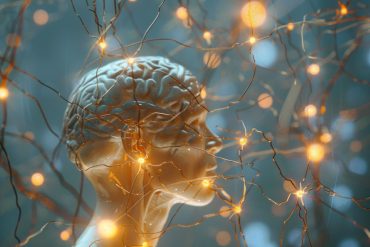Summary: Researchers report genetic variants can affect neural function, which become complicit in triggering multiple sclerosis.
Source: Yale.
Multiple sclerosis (MS) is an autoimmune disease affecting the function of the central nervous system. Up to now, most of the 230 genetic variants associated with the disease have been linked to changes in immune cells. However, Yale scientists now report that genetic risk variants can also affect the function of brain cells, which then become complicit in triggering the potentially disabling disease.
“The risk variant we studied instructs brain cells to lower the barrier for immune cells to enter the brain, which is an important first step in the disease,” said David Pitt, associate professor of neurology and senior author of the study, published Dec. 17 in the journal Nature Communications. “This understanding increases the number of possible targets available for treatment moving forward.”

Pitt also noted that similar mechanisms might apply to other autoimmune diseases such as rheumatoid arthritis and Type 1 diabetes.
Gerald Ponath is the first author of the paper.
Funding: The research was funded by the National Multiple Sclerosis Society and a generous gift by Stanley Trotman, Yale College, class of 1965.
Source: Bill Hathaway – Yale
Publisher: Organized by NeuroscienceNews.com.
Image Source: NeuroscienceNews.com image is adapted from the Yale news release.
Original Research: Open access research for “Enhanced astrocyte responses are driven by a genetic risk allele associated with multiple sclerosis” by Gerald Ponath, Matthew R. Lincoln, Maya Levine-Ritterman, Calvin Park, Somiah Dahlawi, Mayyan Mubarak, Tomokazu Sumida, Laura Airas, Shun Zhang, Cigdem Isitan, Thanh D. Nguyen, Cedric S. Raine, David A. Hafler & David Pitt in Nature Communications. Published December 17 2018.
doi:10.1038/s41467-018-07785-8
[cbtabs][cbtab title=”MLA”]Yale”Gene Variant Found in Brain Complicit in Multiple Sclerosis Onset.” NeuroscienceNews. NeuroscienceNews, 18 December 2018.
<https://neurosciencenews.com/ms-gene-variant-10373/>.[/cbtab][cbtab title=”APA”]Yale(2018, December 18). Gene Variant Found in Brain Complicit in Multiple Sclerosis Onset. NeuroscienceNews. Retrieved December 18, 2018 from https://neurosciencenews.com/ms-gene-variant-10373/[/cbtab][cbtab title=”Chicago”]Yale”Gene Variant Found in Brain Complicit in Multiple Sclerosis Onset.” https://neurosciencenews.com/ms-gene-variant-10373/ (accessed December 18, 2018).[/cbtab][/cbtabs]
Abstract
Enhanced astrocyte responses are driven by a genetic risk allele associated with multiple sclerosis
Epigenetic annotation studies of genetic risk variants for multiple sclerosis (MS) implicate dysfunctional lymphocytes in MS susceptibility; however, the role of central nervous system (CNS) cells remains unclear. We investigated the effect of the risk variant, rs7665090G, located near NFKB1, on astrocytes. We demonstrated that chromatin is accessible at the risk locus, a prerequisite for its impact on astroglial function. The risk variant was associated with increased NF-κB signaling and target gene expression, driving lymphocyte recruitment, in cultured human astrocytes and astrocytes within MS lesions, and with increased lesional lymphocytic infiltrates and lesion sizes. Thus, our study establishes a link between genetic risk for MS (rs7665090G) and dysfunctional astrocyte responses associated with increased CNS access for peripheral immune cells. MS may therefore result from variant-driven dysregulation of the peripheral immune system and of the CNS, where perturbed CNS cell function aids in establishing local autoimmune inflammation.






